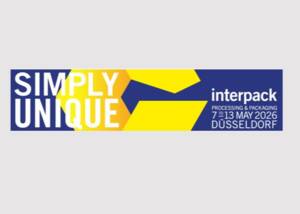Gemeinwohlbilanz 2021: Neumarkter Lammsbräu expands sustainability reporting
News General news
- Even more transparency through additional reporting fields
- Lammsbräu rated as "exemplary" in many audit points
- Auditors certify Lammsbräu's lighthouse status for the common good

Neumarkter Lammsbräu has now taken a further step in its commitment to even more sustainability. For the first time, the organic pioneers from the Upper Palatinate are presenting a balance sheet for the common good for 2021, which creates additional transparency for customers, employees and business partners with regard to the various fields of action in the area of sustainability. The company is thus further expanding its detailed sustainability reporting, which has already received several awards in the past, and can at the same time document its successes on the path it has taken. The company was most recently the winner of the German Environmental Management Award for the best EMAS environmental statement at the end of 2021.
The concept of the common good economy and the accounting concept derived from it (https://web.ecogood.org/de/) aims to align the economic activities of a company with common good-oriented goals. The initiators of the concept have defined parameters to make achievements for the common good measurable and comparable. In the case of Lammsbräu, additional aspects such as fairness in dealing with suppliers, transparency towards customers, dealing with financing partners, co-determination or traceability in the supply chains are included in the audited evaluation compared to the previous reporting. The association behind the concept currently has 2,500 members in Germany alone, 700 of which already report according to the approach.
Johannes Ehrnsperger, owner and managing director of Neumarkter Lammsbräu, justifies the step: "As a value-oriented company, the Gemeinwohlökonomie has given us another holistic tool to reflect on ourselves intensively and critically. The corporate values of Neumarkter Lammsbräu are in line with those of the Gemeinwohlökonomie. We stand for ethical business with a view to the challenges of our time and the vision of a world fit for children."
Lammsbräu has lighthouse status
In the report, the auditors conclude that Lammsbräu achieves an exemplary result for a production company in 16 of the 41 positive aspects recorded in a matrix. In the other aspects, they see Lammsbräu predominantly as "experienced" or "advanced". Overall, the auditors state that Lammsbräu has a lighthouse status in comparison to the other production companies previously evaluated according to this methodology.
The auditors particularly emphasise Lammsbräu's exemplary dealings with suppliers. Long-term contracts with the approximately 180 members of the producer association for organic brewing materials (EZÖB) and the cooperation with members of Naturland are an example of this approach.
The consistent focus on organic ingredients and products also makes a significant contribution to Lammsbräu's excellent result, because in the auditors' view, such management generally serves as a role model with regard to sustainable supply chains, production and product quality.
Consistent reporting since 1992
Ever since Neumarkter Lammsbräu defined sustainability as a corporate goal in 1977, the organic pioneer has been constantly looking for ways to do business in a way that is even more suitable for grandchildren. In the 1990s, this endeavour was systematised: Starting with the first eco-controlling report in 1992, Neumarkter Lammsbräu has since then been self-critically disclosing its actions in detail every year and thus creating starting points for further improvements. In doing so, the Upper Palatinate-based company is guided by the Sustainable Development Goals developed by the United Nations in 2015, which aim to make the world a fairer, healthier, more peaceful and more social place along all dimensions of sustainability.
Neumarkter Lammsbräu has so far published comprehensive sustainability reports every three years in accordance with the GRI standards (see https://www.globalreporting.org/), as well as additional detailed reports on the company's environmental commitment in accordance with EMAS in the interim years. In addition, there are now also the public welfare balance sheets, so that in future these will alternate with sustainability reports according to the standards of the GRI and the environmental report according to EMAS in a three-year cycle.










